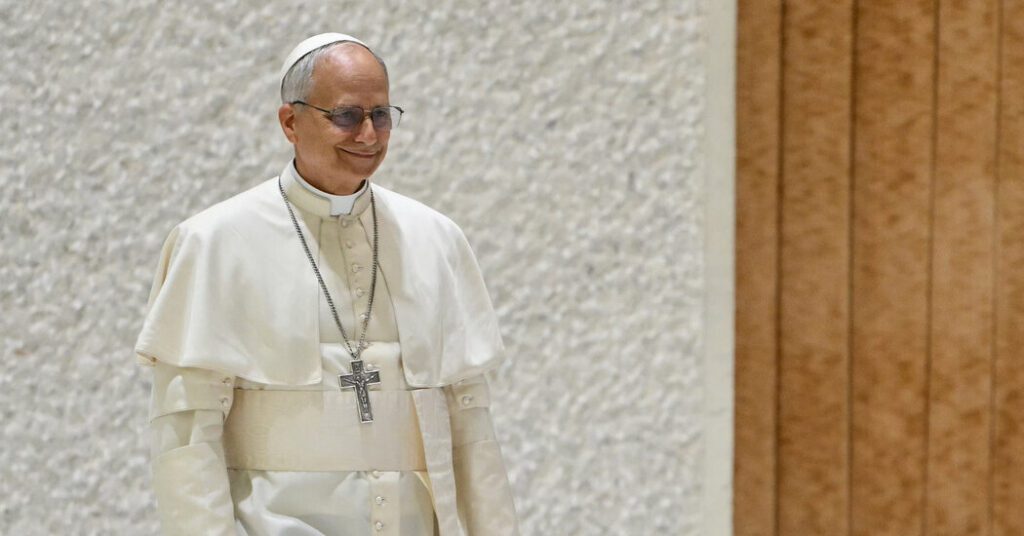Pope Leo XIV: Balancing Health and Responsibilities in the Papacy
Age and the Papacy
At 69 years old, Pope Leo XIV is relatively younger compared to his immediate predecessors. His age places him seven years younger than Pope Francis and nine years younger than Benedict XVI at the time of their ascensions. This position, however, comes with immense responsibilities and expectations, often requiring the pontiff to serve until death.
“The papacy is an enormous effort for any person,” said Dr. Nelson Castro, a physician and journalist who closely followed Francis. He emphasizes that the pope’s role encompasses being a head of state and the global leader of the Roman Catholic Church, responsible for various critical duties ranging from theological oversight to engaging with global leaders.
Health Benefits of Continued Engagement
Engaging in cognitively stimulating work in later years can have several benefits. Mara Mather, a gerontology professor at the University of Southern California, notes that continued learning helps preserve mental agility as one ages. Furthermore, individuals with higher education levels and multilingual skills, such as Pope Leo, may experience a lower risk of cognitive decline.
Additionally, having a strong sense of purpose is linked to better mental health and a lower likelihood of depression in later life. “He has 1.4 billion Catholics to engage with. His writing and theological work provide significant cognitive engagement,” noted Jesuit priest James Martin.
Potential Health Risks of the Papacy
While the benefits are notable, the challenges of papal duties introduce significant stress. The role comes with increasing scrutiny and diplomatic pressures, especially in the context of widespread issues such as the Catholic Church’s historical controversies.
As Father Martin stated, “If there’s any problem in the church, it’s you. You’re always on call, you’re always the pope.” This constant pressure may introduce chronic stress, which can have adverse effects, including cardiovascular issues and a weakened immune system.
Travel and Its Toll
Extensive travel requirements further intensify the rigors of papal responsibilities. For instance, Pope Francis undertook an 11-day visit to Asia, which included his active participation in numerous public events, meetings, and Masses daily. Such demands can increase the likelihood of burnout and complicate recovery from illnesses.
As Dr. Roberto Vicinanza explains, chronic stress can hinder the body’s ability to recover, making it crucial for popes to manage their physical health actively.
Spiritual Engagement and Cognitive Health
Participation in religious practices, including attending weekly services, has been associated with lower rates of depression and enhanced longevity, as reported by psychiatrist Dr. Warren Kinghorn. Studies suggest that religious involvement often correlates with healthier life choices, furthering cognitive health.
The Nun Study, which followed the lives of Catholic nuns for decades, highlighted that those who remained socially, intellectually, and spiritually active tended to maintain better cognitive and physical function into older age.
Physical Health Essentials
Despite the extraordinary nature of the papacy, fundamental health practices are crucial. Dr. Castro emphasizes the importance of exercise, a balanced diet, and sufficient sleep as foundational for maintaining health, underscoring that “popes are human beings.”
Currently, Pope Leo XIV appears healthy, with interests in activities such as tennis—which align with physical wellness. Historical precedents of popes engaging in sports and other activities further illustrate that healthy habits can coexist with the demands of the papacy.
Longevity in Service
Aging varies significantly among individuals. Historical figures like John Paul II, who faced severe health challenges, contrast with Benedict XVI, who stepped down due to his health concerns, while Francis served until his passing. Dr. R. Sean Morrison reminds us that it is essential to focus on an individual’s physiological and cognitive abilities rather than merely their chronological age when considering their capacity to fulfill roles such as the papacy.


